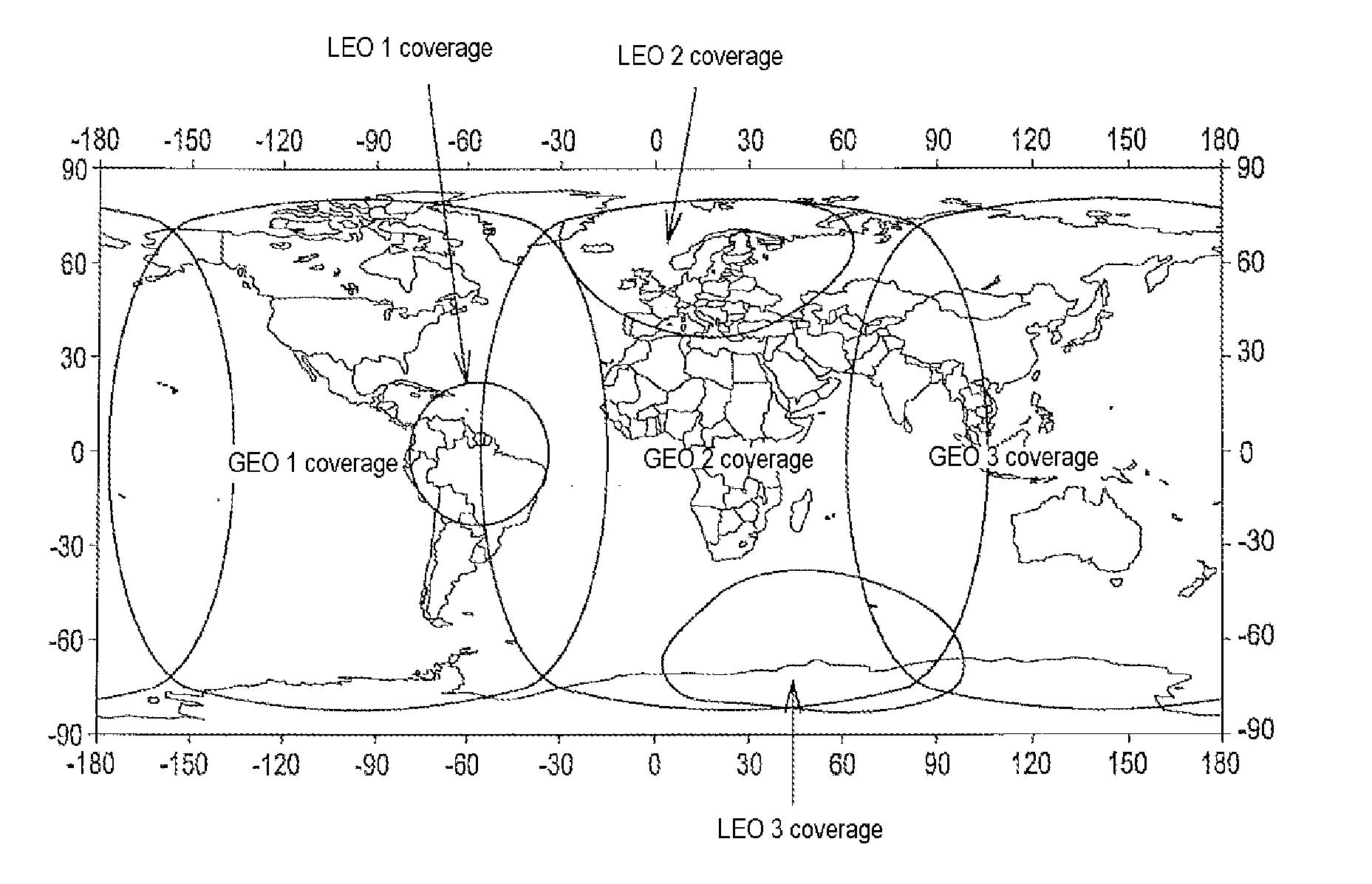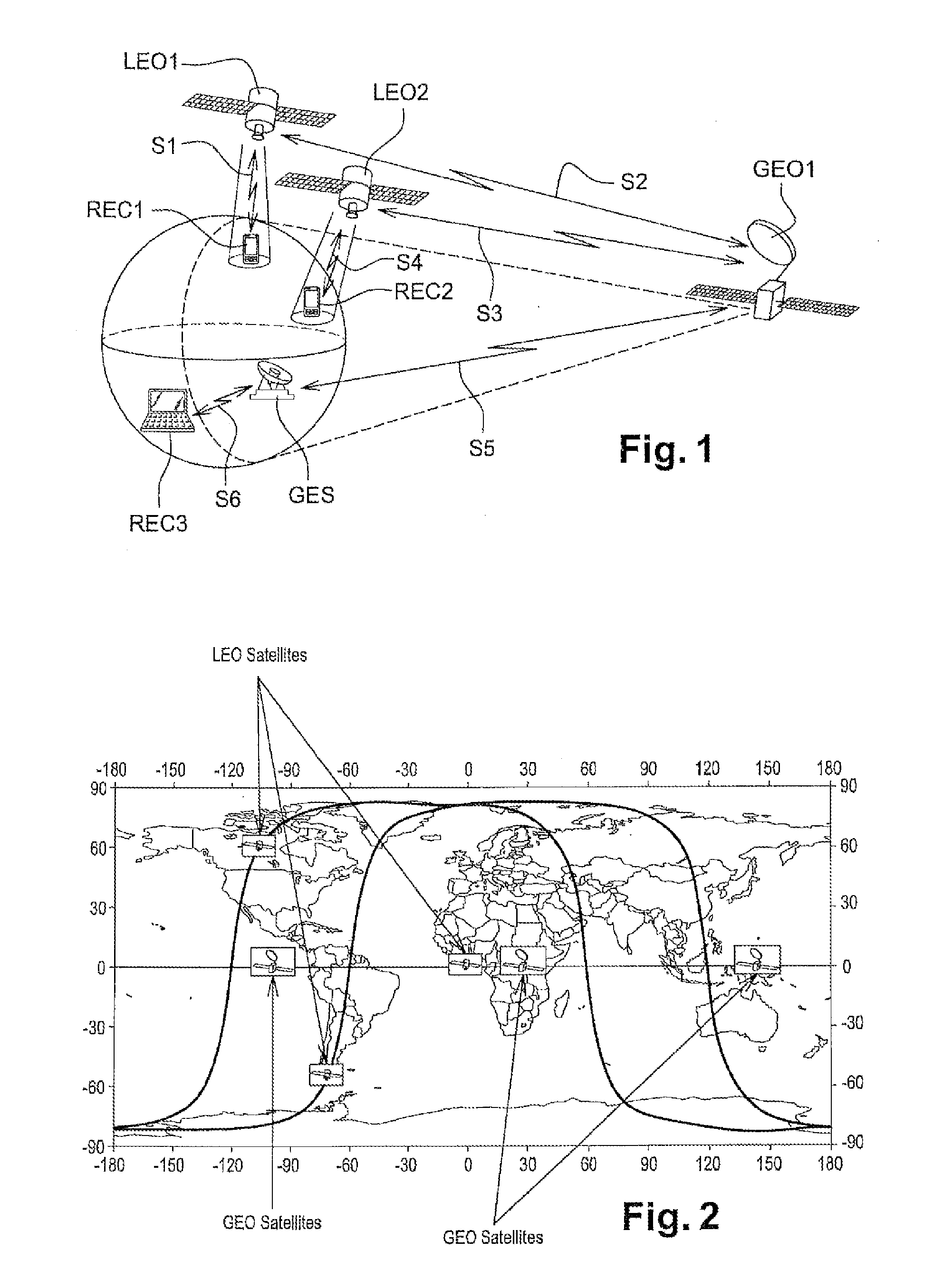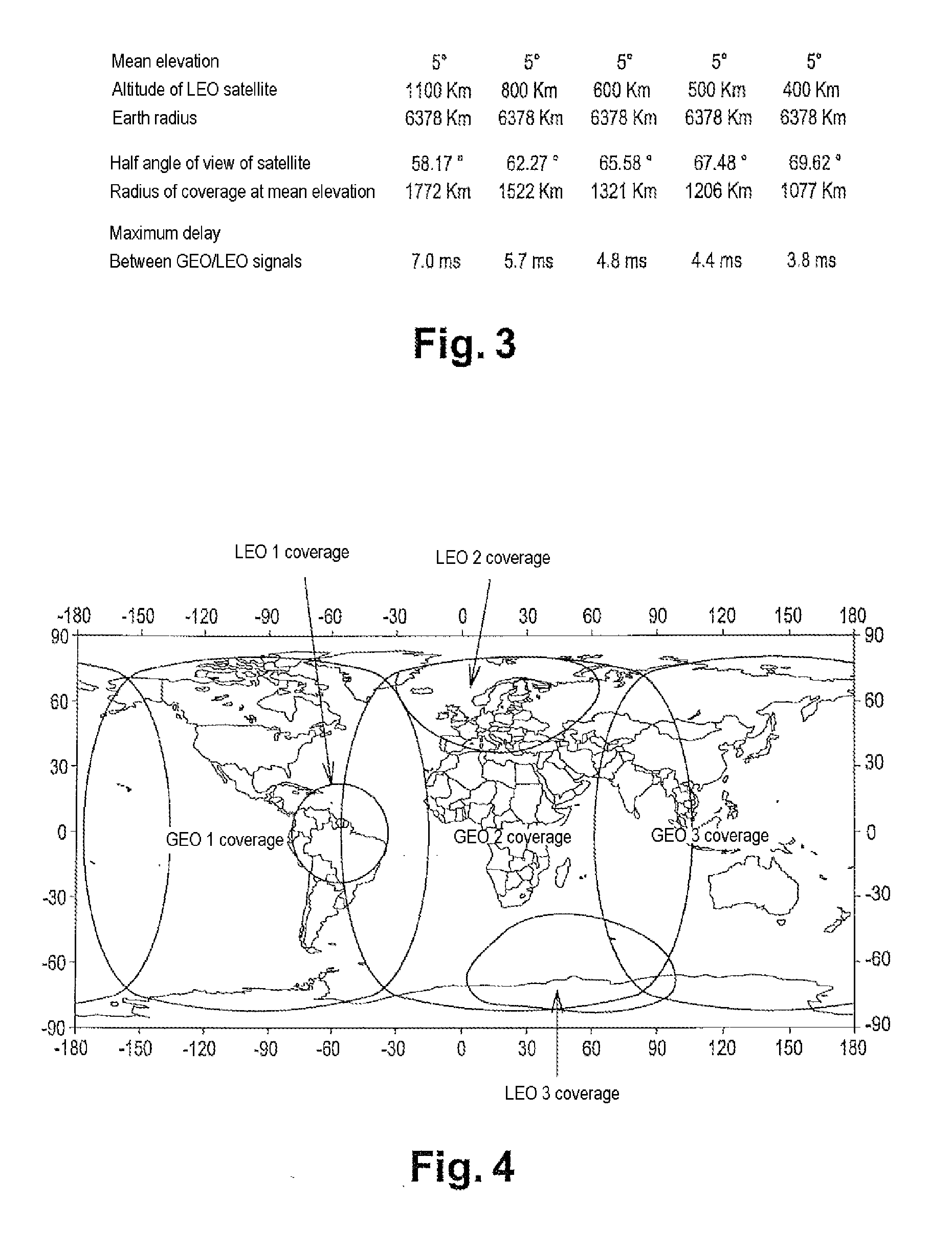Device and method for optimizing the ground coverage of a hybrid space system
- Summary
- Abstract
- Description
- Claims
- Application Information
AI Technical Summary
Benefits of technology
Problems solved by technology
Method used
Image
Examples
Embodiment Construction
[0078]The architecture of the system is shown in FIGS. 1 and 2. As can be seen in these figures, the proposed system uses two satellite constellations. The first constellation is composed of one or more geostationary satellites (also called GEO in the remainder of the description).
[0079]The system, described by way of an entirely non-limiting example, is based on a constellation of three geostationary satellites GEO1, GEO2, GEO3, placed in geostationary orbit above the three main continental areas (for example, at the longitudes of 265° E, 25° E, and 145° E respectively, as shown in FIG. 2). The geostationary satellites GEO1, GEO2, GEO3 operate in what is known as the MSS L-band (1.5 / 1.6 GHz).
[0080]The constellation of geostationary satellites GEO1, GEO2, GEO3 is tracked by one or more terrestrial tracking stations, positioned in view of the geostationary satellites GEO1, GEO2, GEO3 monitored by them, which perform tracking and remote control functions. The constellation of geostati...
PUM
 Login to View More
Login to View More Abstract
Description
Claims
Application Information
 Login to View More
Login to View More - R&D
- Intellectual Property
- Life Sciences
- Materials
- Tech Scout
- Unparalleled Data Quality
- Higher Quality Content
- 60% Fewer Hallucinations
Browse by: Latest US Patents, China's latest patents, Technical Efficacy Thesaurus, Application Domain, Technology Topic, Popular Technical Reports.
© 2025 PatSnap. All rights reserved.Legal|Privacy policy|Modern Slavery Act Transparency Statement|Sitemap|About US| Contact US: help@patsnap.com



